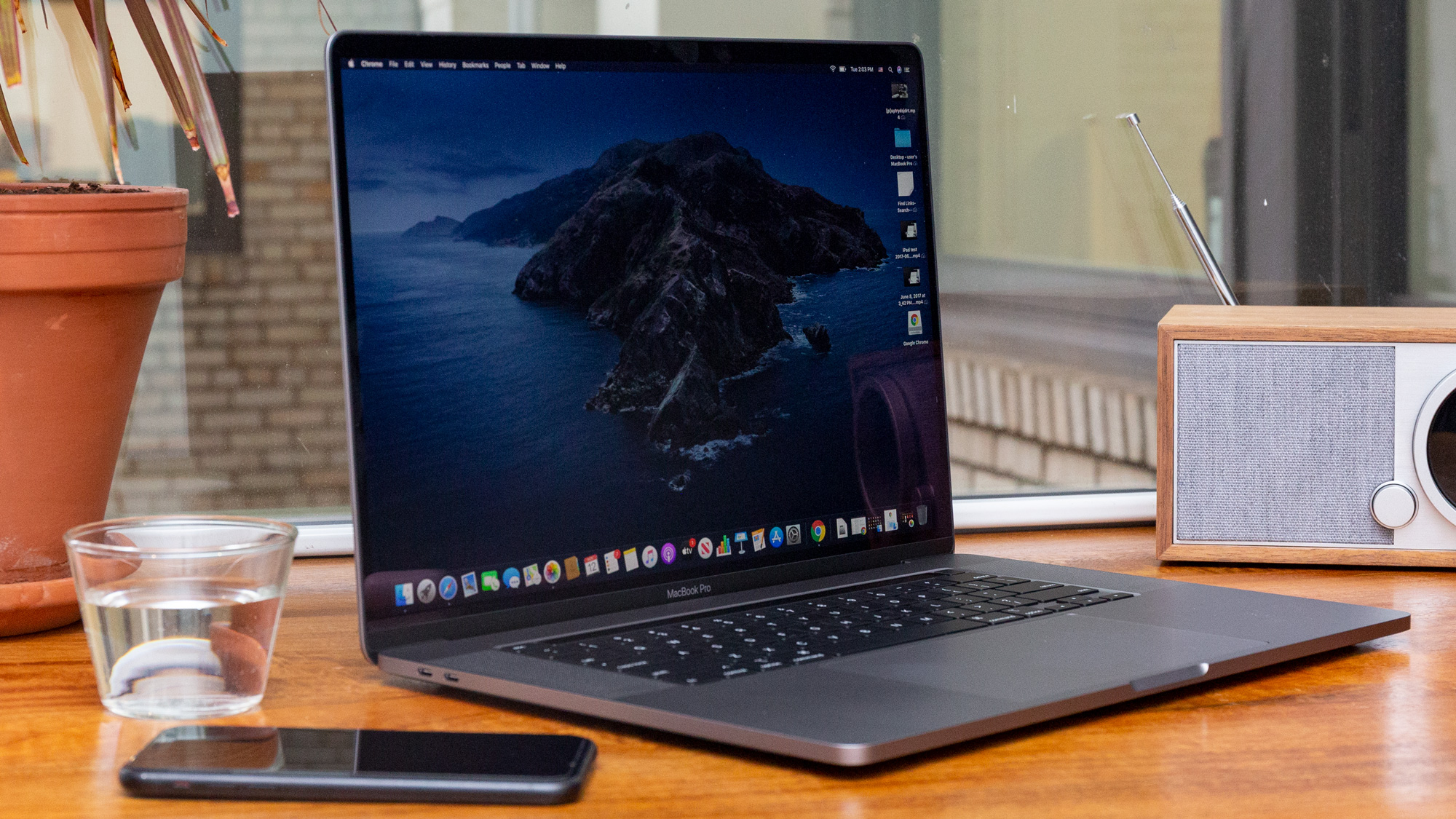The 16-inch MacBook Pro has a major quality control problem
Will Apple’s QA crisis ever end?

If you thought Apple finally got things right by replacing its awful butterfly keyboard on the MacBook Pro 16-inch, prepare to be disappointed by Apple’s poor quality control once again.
A quick recap: Apple fixed its problem-prone Butterfly keyboard on the new MacBook Pro 16-inch by ditching it for the critically praised "Magic Keyboard," which uses scissor switches. Add a stellar battery life, powerful processors and upgraded GPUs, and it felt like the MacBook Pro 16-inch could be the best laptop for macOS power users — even with its $2,400 price tag.
Well, not so fast, because Apple’s quality assurance still seems to be a major issue as shown by two problems that new users are starting to report.
As AppleInsider points out, the MacBook Pro 16-inch exhibits “intermittent popping sounds” that occur when you stop audio, skip it, or close an audio app. It seems to happen when “the clipping you can get when audio peaks too high, or when speakers are abruptly switched off and on.” The problem has been reported by multiple users in different sites.
The Final Cut Pro site fcp.co says that the problem also happens every time a user presses the space bar to play or stop the video in FCP, causing “an annoying loud click from the speakers.” In theory, the speakers on the MacBook Pro 16-inch are great, as we noted our review. But this bug could put a big damper on that quality.
Worse: the MacBook Pro's popping sound problem is not new to the 16-inch model, as it was first widely reported in 2018. How hasn’t this been fixed yet?
Seeing ghosts
In parallel, MacRumors’ forum users — which historically catches many of these ongoing bugs before they go wide — report that the new 16-inch display suffers from “ghosting” issues:
"After some playing around last night and today I've noticed a potential issue I'd like to compare," wrote one user. "When using the launch pad and moving between apps, the display seems to have ghosting — [it’s] not smoothly transitioning between each page of apps. [I’ve] noticed the same thing for stuff like text when scrolling, [it’s] blurry until you stop still. Has anyone else noticed this at all?”
The ghosting problem has some threads in Reddit already, with some redditors very pissed off:
“[After six days] I think I'm gonna have to return my 16" Macbook Pro for a refund," wrote one user on Reddit. "I'm super let down by this. I held off getting a MBP until this rumoured 16 had dropped, then I went all in on the base model. [It’s] great in every way, except the ghosting."
For what it's worth, we didn't experience any speaker or ghosting issues with our own MacBook Pro 16-inch unit. But the multitude of user reports seem to indicate that both of these critical issues are fairly widespread.
When is Apple going to get its QA act together?
The list of problems is so long and egregious that it seems like a joke at this point. From bending iPad Pros and unresponsive iPhone displays to poor antenna reception (you are still holding it wrong) and the aforementioned “dismal butterboards," the problems just don't seem to stop.
The same is true for Apple software. iOS 13 is arguably the buggiest iPhone and iPad operating system yet. The litany of bugs and patches that turn into new bugs or return later with new patches is just too much. And macOS Catalina has been so bad for many that users have been downgrading.
The progression hasn’t been getting any better with the years. 2018 was bad too, but not as bad as 2019. 2017 wasn’t much better, with some obvious bugs like being able to access macOS High Sierra without a password. FaceTime also suffered from another bug this year, one that allowed strangers to potentially snoop into your life through your iPhone’s microphone.
Following its major Facetime spying bug uncovered in February 2019, Apple vowed to increase its quality assurance programs, reportedly reorganizing its structure to make sure that obvious issues are caught before they reach consumers. Obviously, as shown by the many glaring troubles that have happened after that and these two last MacBook Pro bugs, the company is failing.
Sign up to get the BEST of Tom's Guide direct to your inbox.
Get instant access to breaking news, the hottest reviews, great deals and helpful tips.
Jesus Diaz founded the new Sploid for Gawker Media after seven years working at Gizmodo, where he helmed the lost-in-a-bar iPhone 4 story and wrote old angry man rants, among other things. He's a creative director, screenwriter, and producer at The Magic Sauce, and currently writes for Fast Company and Tom's Guide.

